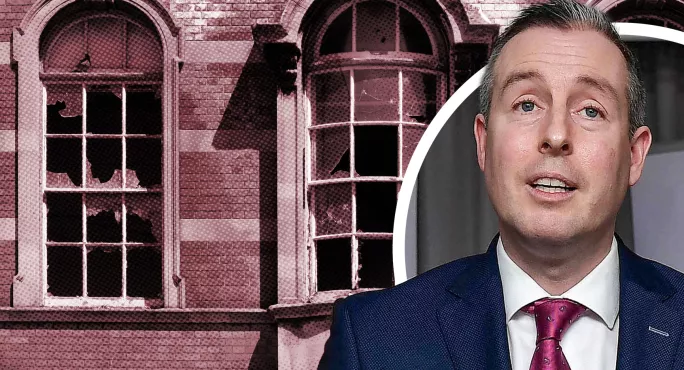Funding needed to keep NI schools open, warns new minister

Northern Ireland’s new education minister has said that “substantial additional investment” is “urgently required” to keep schools open and safe, warning that the capital budget for education is “wholly insufficient”.
Paul Givan today told the newly formed Northern Ireland Assembly that “education cannot continue with current levels of capital funding”.
“We are at risk even around the most basic requirements to keep schools open, children safe and to provide places for our most vulnerable learners,” he said.
“Substantial additional investment is therefore urgently required.”
Mr Givan - who has served as the DUP member of the legislative assembly for Lagan Valley since 2010 and who was first minister from June 2021 to February 2022 - said his department had put in bids totalling £528 million to the Department of Finance “to meet education capital needs next year”.
He said “an absolute minimum” of £100 million above the draft budget allocation was needed to meet pressures in regard to special educational need placements.
Mr Givan also said that sustained investment in Northern Ireland’s “decrepit, unfit” school buildings would also be needed over the next decade, and his officials were drawing up a capital investment strategy for education.
- Background: Four priorities for Northern Ireland education after devolution is restored
- News: Schools at the forefront of landmark NI strike action
- Related: Northern Ireland’s transfer tests - what you need to know
Mr Givan was appointed education minister earlier this month following the restoration of devolved government to Northern Ireland after a 24-month hiatus.
Today he used his first ministerial statement in the assembly to make the case for transforming Northern Ireland’s school buildings so that they are “truly fit for the future”.
‘Crumbling’ school buildings
Mr Givan said that the number of children with special educational needs in Northern Ireland had risen from 19,000 in 2019 to 24,000 currently and that there were, therefore, 5,000 “additional children requiring places”.
He also said that teachers could not be expected to foster the skills their pupils needed for life in the 21st century in “crumbling buildings, with poor facilities, designed and built 60, 70 or 80-plus years ago”.
Many mid-20th century school buildings had “reached the end of their shelf life”, he said, and were “quite simply no longer fit for purpose”.
Mr Givan said that every day officials were receiving “unprecedented emergency requests” to replace boilers and heating and canteen equipment “to simply keep schools open”.
He said Belfast’s Glenwood Primary School was a case in point. Mr Givan visited the school last week in one of his first official visits following his appointment.
He said that while the school was doing “fantastic work in challenging circumstances”, it was at “imminent risk of collapse” because of “crumbling wall ties and ageing buildings”.
He said the executive faced a choice - either to leave children behind in “decrepit, unfit buildings” with “demoralised teachers” or to make sure “every child benefits from improved facilities and is educated in a high-quality learning environment by motivated teachers”.
Register with Tes and you can read two free articles every month plus you'll have access to our range of award-winning newsletters.
Keep reading with our special offer!
You’ve reached your limit of free articles this month.
- Unlimited access to all Tes magazine content
- Save your favourite articles and gift them to your colleagues
- Exclusive subscriber-only stories
- Over 200,000 archived articles
- Unlimited access to all Tes magazine content
- Save your favourite articles and gift them to your colleagues
- Exclusive subscriber-only stories
- Over 200,000 archived articles
topics in this article



